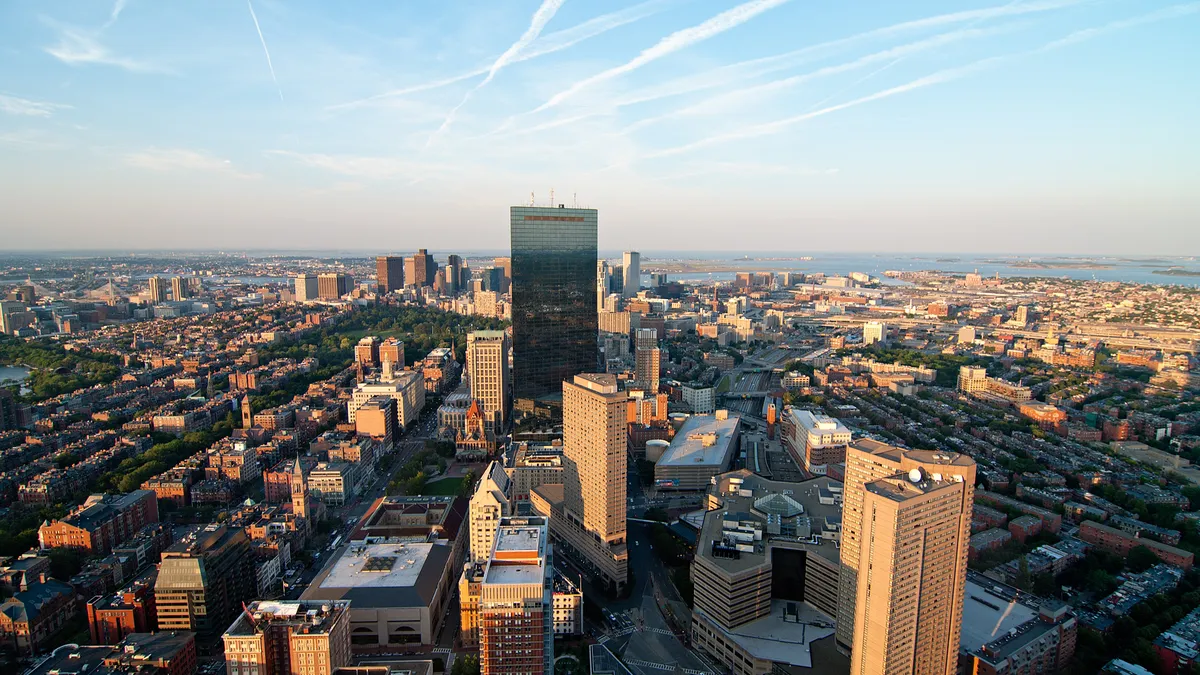Dive Brief:
- In 2018, Boston had one of its best years for creating or preserving affordable housing, with 546 new units completed, according to its 2018 Inclusionary Development Policy (IDP) annual report. That's about 21% of all the units created since the IDP program began in 2000. An additional 834 units are under construction or have been permitted, and 1,285 units are in projects that have received approval but have not yet been permitted.
- Even with the significant gains, the city has proposed changes to strengthen the IDP this year. It has brought a consultant on board to help figure out the appropriate amount of affordable housing to require, reports The Boston Globe. Meetings and community hearings on IDP changes are expected this spring and summer, with a final revamped plan anticipated later this year.
- The current IDP requires that developers who have new buildings of 10 or more units make 13% of the units affordable or contribute to Boston's affordable housing fund.
Dive Insight:
Of all the affordable units created in Boston last year, 25% are owned and 75% are rentals. When considering all IDP housing, nearly half of it is in or near Boston's downtown. Bringing affordable housing to the heart of a city can be challenging because that's where development is most coveted and rents — both residential and commercial — tend to rise the quickest and most steeply. It's also usually the densest area and tough to find new places to build.
But putting affordable housing in these areas creates more opportunity for the residents who live in the units. They have better access to transit and to a larger supply of jobs than in farther out areas. With more jobs being in a city center, living nearby means they could end up spending less time and money commuting to work. They also have easier access to food, entertainment and all the other elements a city's downtown offers.
Boston's population has been growing in recent years and its housing costs have increased to make it one of the most expensive places to live in the country. Simultaneously, it faces housing capacity challenges. Boston is one of the oldest cities in America and has little available land on which to build due to centuries of development, and also being positioned adjacent to the ocean. These factors make it among the hardest hit cities in the national housing crisis.
City leaders have been making concerted efforts to turn the tide by increasing housing capacity and controlling costs. In January, Mayor Marty Walsh proposed a 14-bill legislative package related to housing security and economic mobility. Last fall, the city released a request for proposals (RFP) for affordable housing projects to which it could offer financial support, including $16 million from the affordable housing fund. The city also established short-term rental regulations to free up more of the housing supply for full-time residents instead of visitors, also in the hopes of curbing rental price increases. Plus, it created a $10 million private donor fund to combat homelessness.
Leaders are closely monitoring the housing situation and have enlisted consultants to help make improvements while still keeping a balance. Imposing too many regulations and mandates could cool the pace of new projects if developers find the conditions unfavorable.












